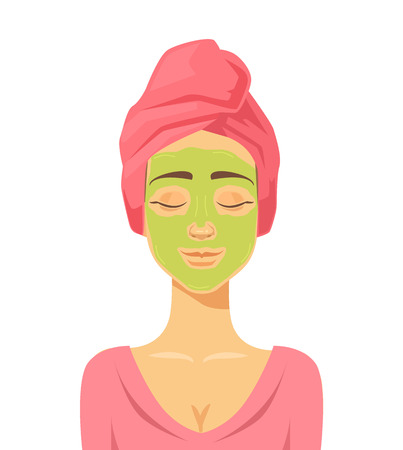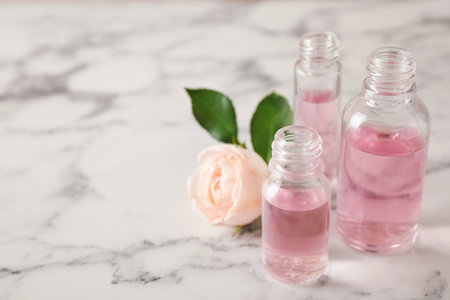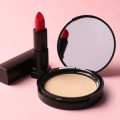Understanding Facial Oils: What Makes Them Unique?
If you’ve ever wandered through the beauty aisles in the UK, you’ll know that facial oils have become more than just a fleeting trend—they’re now an absolute essential in many skincare collections. But what exactly sets facial oils apart from other moisturisers and serums? At their core, facial oils are concentrated blends of nourishing plant extracts, botanicals, and skin-loving fatty acids. Unlike traditional creams or gels, these oils penetrate deeper into the skin barrier, locking in hydration and delivering a luminous glow that British complexions adore—especially when the weather turns unpredictable. Key ingredients often found in facial oils include rosehip for its rejuvenating vitamin A, squalane for lightweight hydration, and jojoba oil which closely mimics our skin’s natural sebum. In the UK, where chilly winds and damp air can play havoc with your skin’s moisture levels, these potent elixirs provide a comforting shield against dryness and irritation. It’s no wonder they’ve taken pride of place on dressing tables across Britain; facial oils cater to every skin type and concern, making them a versatile staple from London to the Scottish Highlands.
2. How British Weather Affects Your Skin
Let’s get real—living in the UK means you’re always at the mercy of unpredictable weather. From misty mornings in Manchester to blustery afternoons in Brighton, our skin faces unique challenges every day. To help you understand how these climate quirks can influence your complexion, let’s break down the typical British weather patterns and their impact on your skin health.
| Weather Condition | Typical Occurrence | Impact on Skin |
|---|---|---|
| High Humidity | Common in summer and coastal areas | Can leave skin feeling greasy, clog pores, and trigger breakouts; requires lightweight oils or serums |
| Frequent Rain | Year-round, especially autumn and winter | Makes skin prone to dehydration due to wind and indoor heating; calls for barrier-repairing oils to lock in moisture |
| Cold Snaps & Frost | Mainly winter months, sudden temperature drops | Strips natural oils, causes dryness, flakiness, and sensitivity; needs richer facial oils with protective ingredients |
| Windy Days | All year but strongest in autumn and spring | Irritates skin, leads to redness and chapping; soothing oils with anti-inflammatory properties are key |
The bottom line? Our ever-changing weather means your skincare routine can’t be one-size-fits-all. Understanding these patterns is crucial when choosing a facial oil that works for you. In the next section, we’ll show you how to pick the perfect formula based on these UK-specific conditions—so you’ll always have that fresh-faced glow, come rain or shine!

3. Debunking Myths: Are Facial Oils Suitable for All Skin Types?
When it comes to facial oils, there’s a lot of confusion – especially in the UK, where our weather can swing from damp and chilly to hot and humid, sometimes all in one week! Let’s challenge some of the most common myths about facial oils and get real about which skin types truly benefit from their use.
Myth 1: Facial Oils Make Oily Skin Worse
This is probably the biggest misconception out there. Many believe that if you’ve got oily or combination skin – a situation not uncommon with the unpredictable British climate – applying oil will make things worse. In reality, certain lightweight, non-comedogenic oils (think rosehip or squalane) can actually help balance your skin’s natural oil production. When your skin feels hydrated and protected, it tends to produce less sebum, not more!
Myth 2: Facial Oils Are Too Heavy for Sensitive or Acne-Prone Skin
For those with sensitive or acne-prone skin, particularly in colder regions of the UK where central heating can leave your complexion parched, the right facial oil can be a game-changer. Look for oils with anti-inflammatory properties such as calendula or evening primrose. These won’t clog pores but will provide much-needed nourishment and calmness when your skin barrier is feeling stressed by environmental changes.
Who Really Benefits from Facial Oils in the UK?
Now, let’s set the record straight: almost every skin type can reap the rewards of facial oils if you choose wisely.
Dry Skin:
Facial oils are a must-have for dry skin types, especially during harsh British winters when cold winds and indoor heating sap away moisture. Opt for rich emollients like avocado or marula oil for deep hydration.
Combination & Oily Skin:
If your T-zone gets shiny but your cheeks feel tight (classic UK air-con issue!), lighter oils such as jojoba mimic your skin’s natural sebum and help regulate oil without causing breakouts.
Sensitive Skin:
Choose fragrance-free and hypoallergenic options. Blue tansy or camellia oils are gentle choices that soothe redness and irritation without overwhelming delicate complexions.
Pro Tip:
Always patch test a new oil first on a small area of your face before going full glam, especially if you’re prone to reactions. And remember, less is more – just a few drops pressed into damp skin after cleansing is all you need to lock in hydration and boost that healthy glow.
4. Choosing the Right Oils: Best Options for the British Climate
When it comes to selecting facial oils that truly work in the unpredictable British weather, its crucial to understand how different oils interact with damp, chilly, and frequently fluctuating conditions. Let’s break down three popular oils—rosehip, squalane, and sea buckthorn—to see which ones perform best when faced with misty mornings, sudden downpours, or those brisk afternoon chills that are all too familiar across the UK.
Rosehip Oil: Lightweight Hydration for Damp Days
Rosehip oil is a staple in many UK skincare routines for good reason. This lightweight oil absorbs quickly, making it ideal for humid or rainy weather where heavier oils can feel sticky. Rich in vitamin C and essential fatty acids, rosehip not only hydrates but also helps combat the dullness often caused by grey skies. Use it as your morning glow-booster under makeup for a fresh, dewy finish that wont clog pores even when the air feels heavy.
Squalane: Versatile Protection Against the Chill
Squalane is another favourite among Brits, especially during colder months. Its texture mimics skin’s natural oils, delivering moisture without greasiness—a dream when central heating kicks in or cold winds whip across your face. Squalane provides a protective barrier against moisture loss while remaining breathable, so you can layer it under your SPF or foundation and still look flawless on blustery commutes.
Sea Buckthorn Oil: Resilience for Fluctuating Temperatures
If your skin struggles with constant temperature changes—from heated shops to icy streets—sea buckthorn oil is your ally. Packed with antioxidants and omega-7 fatty acids, this vibrant oil strengthens the skin’s barrier and supports repair processes. It’s particularly effective at soothing redness and irritation that can flare up with rapid shifts between indoor warmth and outdoor chill.
How Do These Oils Compare?
| Oil Type | Texture | Best For | Main Benefits |
|---|---|---|---|
| Rosehip | Lightweight | Damp, humid days | Brightening, quick absorption, non-comedogenic |
| Squalane | Silky, non-greasy | Chilly, windy weather | Deep hydration, barrier protection, suits all skin types |
| Sea Buckthorn | Rich but fast-absorbing | Fluctuating temperatures | Soothing, strengthens resilience, calms irritation |
Your Perfect Match: Application Tips for Maximum Benefit
For maximum results in the UK climate, apply rosehip oil after cleansing on damp skin to lock in hydration on misty days. Layer squalane over your moisturiser before braving frosty mornings or biting winds. Reserve sea buckthorn as an overnight treatment when facing harsh weather transitions—it’ll help restore balance while you sleep. With these tailored picks and techniques, you’ll keep your skin glowing whatever the British forecast throws your way!
5. Pro Tips: How to Incorporate Facial Oils into Your Routine
Timing Is Everything: When to Apply Facial Oils in the UK
Facial oils can be a game-changer, but knowing when to use them is key, especially given the UK’s unpredictable climate. For best results, apply your facial oil after your serum but before your moisturiser in the evening. This helps lock in hydration and creates a barrier against cold winds or central heating. In the mornings, if your skin tends to be dry or you’re facing a particularly brisk day, add a drop or two to your moisturiser for an extra protective boost without feeling heavy.
Pairing with Serums: The Perfect Match
Not all serums and oils are created equal. To avoid pilling or congestion, choose lightweight, fast-absorbing oils (like squalane or rosehip) if you’re layering over active serums such as Vitamin C or hyaluronic acid. This pairing is ideal for UK dwellers dealing with both rain-soaked commutes and indoor heating. Always allow your serum to fully absorb before gently pressing oil into your skin—think of it as sealing all that goodness in!
Avoiding the Greasy Finish: Everyday Tips for UK Life
No one wants a shiny face on the Jubilee line or at afternoon tea! To sidestep a greasy finish, start with a tiny amount—one or two drops go a long way. Warm the oil between your palms and press it into your skin rather than rubbing. If you have combination or oily skin (a common concern when humidity spikes), focus application on drier areas like cheeks while avoiding the T-zone. For daytime wear, opt for mattifying facial oils containing ingredients like grapeseed or jojoba, which balance sebum without clogging pores.
Bonus Tip: Multi-Tasking Magic
Did you know facial oils can double up as glow boosters? Mix a drop with your foundation or dab lightly onto cheekbones for a healthy radiance—even on grey London mornings. With these pro tips, you’ll keep your complexion comfortable, balanced, and luminous no matter what the British weather throws your way.
Expert Recommendations for the Top Facial Oil Picks in the UK
When it comes to choosing the best facial oils for the ever-changing UK weather, British beauty experts and influencers have their tried-and-tested favourites. Here’s a curated edit of cult-classics and homegrown heroes that have won rave reviews across the UK’s beauty community.
1. Pai Rosehip BioRegenerate Oil
This much-loved British brand is a staple in many skincare routines. Its rich concentration of rosehip oil delivers deep hydration and helps repair weather-stressed skin—perfect for battling both blustery winds and central heating-induced dryness.
2. Elemis Superfood Facial Oil
Infused with antioxidant-rich broccoli, flaxseed, and daikon radish, this nourishing oil is ideal for those looking to give their skin a healthy glow year-round. Recommended by UK facialists for its lightweight texture that absorbs quickly without leaving residue.
3. Votary Super Seed Facial Oil
A homegrown favourite, Votary’s blend of 22 seed oils is a rescue remedy for sensitive, reactive or hormonal skin, making it especially useful as temperatures and humidity fluctuate throughout the year.
4. The Ordinary 100% Organic Cold-Pressed Rose Hip Seed Oil
This budget-friendly pick is a go-to among British influencers for its pure formulation and impressive results on dull, winter-weary complexions. It’s also suitable for most skin types, including oily and combination.
5. Aurelia Cell Repair Night Oil
Praised by dermatologists for its blend of neroli, lavender, rose and mandarin oils, Aurelia’s overnight elixir works wonders while you sleep—restoring radiance and resilience to city-stressed skin exposed to pollution and unpredictable weather.
Pro Tips from UK Experts
Application Matters: Always apply facial oils on slightly damp skin to lock in maximum hydration—a tip straight from top British make-up artists.
Layer Wisely: In colder months, layer your oil under your moisturiser; during warmer spells, use alone or mix a drop into your foundation for extra dewiness.
Patch Test: Don’t forget to patch test any new product—especially if you have sensitive or allergy-prone skin common in the UK climate.
Your Local Oil Ritual
No matter which facial oil you choose, embrace it as part of your self-care ritual. As endorsed by leading UK skincare gurus: consistency is key to seeing the full benefits—whatever the British weather throws your way!


